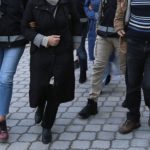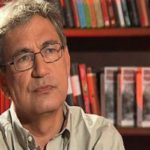Do you (almost) have a (Research) Master’s degree in History or a related area and do you have an interest in the history of the dispossession of Indigenous land and slavery? Please apply for this PhD position at the Vrije Universiteit Amsterdam (VU).
Location: AMSTERDAM
FTE: 1
Job description
The two PhD positions in the Department of Art & Culture, History, and Antiquity (AHA) at the Vrije Universiteit Amsterdam will look at Land grabbing in Asia (Banda Islands and West-Java) in the seventeenth century, and in the Americas (New Netherland and Suriname) in the same period.
The positions are part of the Dutch Research Foundation (NWO) Vidi project Land Grabbing Empire: State Strategy and Large Scale Land Transfers in Dutch Expansion (16th-18th century). Apart from the two PhD projects, this project also contains a sub-project by the principal investigator Dr. Pepijn Brandon on land grabbing in the Dutch Republic and the circulation of land grabbing strategies and practices in the Dutch Empire.
Topic
Land grabbing, defined as the forced transfer of land from peasant producers to commercial investors, deeply affects the organization of global agriculture. Although the roots of this phenomenon go back centuries, its dynamics are still poorly understood. The reason is that land grabbing is usually analysed as a form of violent, rent-seeking behaviour, artificially counterpoised to the institutional underpinnings of more advanced capitalist economies. This project radically reverses this perspective by investigating how the highly market-oriented early modern Dutch state and colonial companies employed land grabbing to advance commercial agriculture.
Conquests by the early modern Dutch state and colonial companies led to profound shifts in landholding and land use, both overseas and domestically. What is unknown is to what extent this was the result of active and premeditated policies, and how strategies for agrarian transformation “travelled” between domestic and colonial frontier regions. To find this out, this project compares policies for rural transformation along four analytical axes:
- Property (shifts in landownership and their legitimization)
- Power (conflict and collaboration between Dutch and Indigenous actors, including Indigenous resistance)
- Labour relations (transformations of agricultural labour systems, including the introduction of commodified forms of slavery)
- Ecology (exploiting and engineering natural conditions)
The two PhD candidates will investigate these four axes for important regions conquered by the Dutch state and colonial companies in South-East Asia and the Americas. The PhD supervisors will be Dr. Pepijn Brandon and Prof. Dr. Ulbe Bosma (South-East Asia) and Dr. Pepijn Brandon and Prof. Dr. Marjolein ’t Hart (Americas).
Your duties
- conduct research on the project’s topic, resulting in a PhD dissertation and at least one journal publication
- participate in the research activities of AHA
- participate in the research activities of the Vidi group (and related national and international events)
- participate in teaching activities of AHA (max. 10% of your time)
- participate in the VU PhD training program and the training program of the national research school for Social and Economic History, the N.W. Posthumus Institute
Requirements
- a Master’s or Research Master’s degree in History, or can be expected to obtain it in this academic year. We will also consider outstanding candidates with degrees in related fields
- a promising academic profile and affinity with the methods of Global Economic and Social History, as shown in grade transcripts, final thesis, and curriculum vitae
- a personal affinity with topics such as the history of Colonialism, Slavery, and Indigenous Dispossession, as apparent from activities within and/or outside the context of your studies
- experience in working with early-modern sources in Dutch
- motivation and ability to work as part of a research team
- excellent spoken and written English as well as strong academic writing skills
What are we offering?
A challenging position in a socially involved organization. The salary will be in accordance with university regulations for academic personnel and amounts € 2,434 (PhD) per month during the first year and increases to € 3,111 (PhD) per month during the fourth year, based on a full-time employment. The job profile: is based on the university job ranking system and is vacant for 1 FTE.
The appointment will initially be for 1 year. After a satisfactory evaluation of the initial appointment, the contract will be extended for a total duration of 4 years.
Additionally, Vrije Universiteit Amsterdam offers excellent fringe benefits and various schemes and regulations to promote a good work/life balance, such as:
- a maximum of 41 days of annual leave based on full-time employment
- 8% holiday allowance and 8.3% end-of-year bonus
- solid pension scheme (ABP)
About Vrije Universiteit Amsterdam
The ambition of Vrije Universiteit Amsterdam is clear: to contribute to a better world through outstanding education and ground-breaking research. We strive to be a university where personal development and commitment to society play a leading role. A university where people from different disciplines and backgrounds collaborate to achieve innovations and to generate new knowledge. Our teaching and research encompass the entire spectrum of academic endeavor – from the humanities, the social sciences and the natural sciences through to the life sciences and the medical sciences.
Vrije Universiteit Amsterdam is home to more than 26,000 students. We employ over 4,600 individuals. The VU campus is easily accessible and located in the heart of Amsterdam’s Zuidas district, a truly inspiring environment for teaching and research.
Diversity
We are an inclusive university community. Diversity is one of our most important values. We believe that engaging in international activities and welcoming students and staff from a wide variety of backgrounds enhances the quality of our education and research. We are always looking for people who can enrich our world with their own unique perspectives and experiences.
Faculty of Humanities
The Faculty of Humanities links a number of fields of study: Language, Literature and Communication, Art & Culture, History, Antiquities and Philosophy. Our teaching and research focus on current societal and scientific themes: from artificial intelligence to visual culture, from urbanization to the history of slavery, from ‘fake news’ in journalism to communication in organizations. We strive to ensure small group sizes. Innovative education and interdisciplinary research are our hallmarks.
Working at the Faculty of Humanities means making a real contribution to the quality of leading education and research in an inspiring and personal work and study climate. We employ more than 250 staff members, and we are home to around 1,300 students.
Application
Are you interested in this position? Please apply via the application button and upload your curriculum vitae and cover letter until
November 25, 2021
.
Applications received by e-mail will not be processed.
Vacancy questions
If you have any questions regarding this vacancy, you may contact:
Name: Dr. P. (Pepijn) Brandon
Position: Assistant Professor
E-mail: [email protected]
No agencies
***Show some love and please mention newsaboutturkey.com* in your application***
***We also feel loved when you share it***


